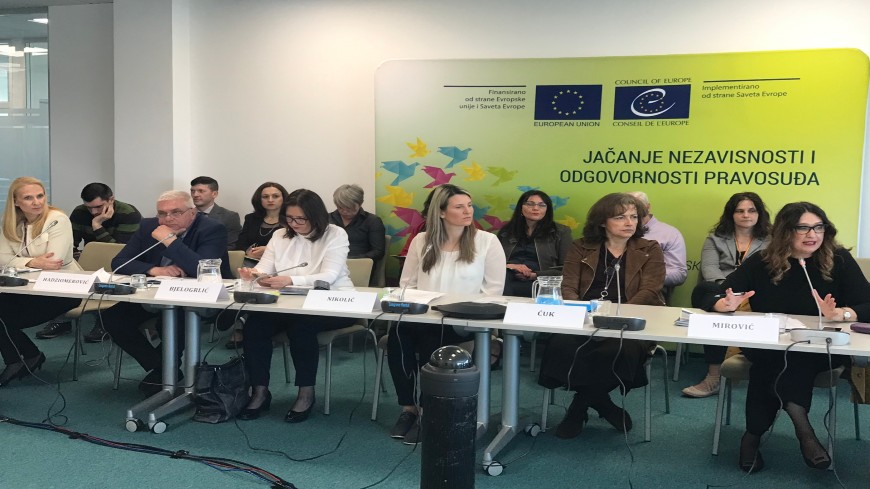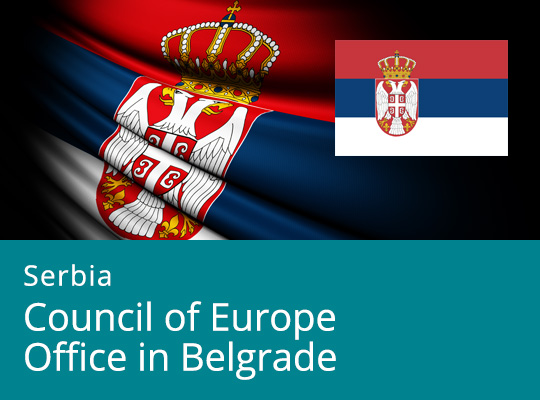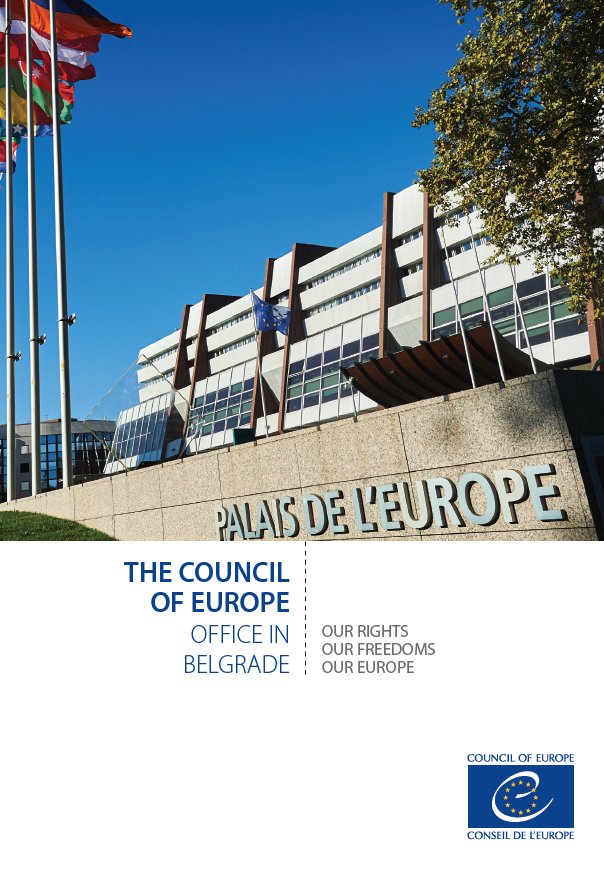The Guidelines on ethical usage of social media by judges and public prosecutors have been presented in the new premises of the Council of Europe Office in Belgrade on 14 April 2022. The Guidelines were produced by the joint European Union and Council of Europe action “Strengthening independence and accountability of the judiciary” and were developed in close co-operation with the Ethics Committees of the Serbian High Judicial Council (HJC) and State Prosecutorial Council (SPC) and are intended for the holders of judicial functions.
Bearing in mind the importance of the topic, the presentation of the the Guidelines for Judges and Public Prosecutors was organised as a hybrid event, which means that all holders of judicial functions interested in this topic could follow the Guidelines' presentation and participate in it also through video link.
A total number of 60 holders of the judicial function attended the presentation, of which 40 of them followed the presentation via video link, while 20 judges and public prosecutors attended the event in person.
Nadia Cuk, Deputy Head of the Council of Europe Office in Belgrade, Snezana Bjelogrlic, Мember of the High Judicial Council, and Tamara Mirovic, President of the Ethics Committee of the State Prosecutorial Council, addressed the participants during the introduction part, mentioning the importance of this Guidelines and that the use of social networks by judges and public prosecutors is not specifically regulated by legal norms, which raise a number of ethical issues and ethical dilemmas.
Judge Omer Hadziomerovic, President of the HJC Ethics Committee, stressed in his foreword to the Guidelines that they will certainly be of great use not only to judges who exercise their freedom of expression through social networks, but also to the newly formed Ethics Committee.
Member of the SPC Ethics Committee, Professor Jovan Babic underlined that the Guidelines represent a very good basis for ethical regulation of the increasingly present and significant problematic situations in our new reality which opens new perspectives, but also produces unforeseen risks and dangers.
The co-author of the Guidelines, dr Djordje Krivokapic, presented the methodology and consultation process with the holders of judicial functions that preceded to drafting the Guidelines, and further the content of the Guidelines, which, in addition to the regulatory framework, contains recommendations regarding general behaviours of the holders of judicial function, friendship and other types of connection, as well as freedom of expression.
Bearing in mind that the internet and social networks have become an important and inseparable part of our social and professional life, judges and public prosecutors took active part in the discussion and highlighted the importance of opening of the individual courts/public prosecutor offices towards social networks.
The holders of judicial functions agreed that this Guidelines will certainly help judges and public prosecutors find instructions and advice on how to handle social media and how to act in other situations that are determined by new technologies, which are not yet adequately legally and customly regulated.
The action “Strengthening independence and accountability of the judiciary” is part of the “Horizontal Facility for the Western Balkans and Turkey 2019 - 2022”, the joint European Union and the Council of Europe programme, which aims at assisting beneficiaries in the Western Balkans region and Turkey to comply with the Council of Europe standards and European Union acquis in the framework of the enlargement process, where relevant.





